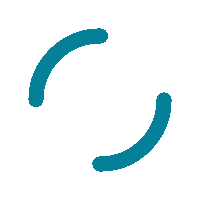.png)
Our Team
Experienced. Deeply passionate. Seriously enthusiastic.
.png)
.png)
Our Values

The Power of Difference
We believe that our differences, woven together with unified purpose, hold the answers to creating a world where everyone can thrive.

Being Grounded in Love
LOVE is at the root of CoCreative’s practice…love for one another, for our differences, and for our planet.

Joy and Hope
The result? Not just systems change, but joy, laughter, and hope. We know that the work is working when we’re experiencing the future we want today.

.png)
.png)
.png)

Whole People
Each of us is a whole person worthy of love, respect, and the opportunity to thrive.

Beloved Community
Our work is guided by empathy, generosity, reciprocity, accountability, integrity, and trust in our human capacity and ability to learn to create well-being for all.

Embracing Both-And
We lean into conflicts by honoring the truths in each perspective and weaving seemingly opposing truths for deeper understanding and empathy.
Dates:
25 de febrero, 4, 11 y 18 de marzo de 2026
Dates:
February 13, 2026
Transform intention into action!

CoCreative is a small team of individuals who come from a diverse range of backgrounds and experiences and are driven by our belief that no problem can’t be solved by genuine, intentional human collaboration.
Community of Collaborators
Our work is made vastly better by the talented folks we partner with to support our clients and field-building initiatives.
.png)

Our Beliefs
The problems are hard, the answers are human.
We believe that the toughest problems we face in our communities, countries, and the world can only truly be solved when people collaborate across their differences and create solutions together. And we believe that cultivating a world where all life can flourish requires that we address the needs of the people most negatively impacted by inequity and oppression in our systems.
Our clients are often surprised we’re as invested in the success of their projects as they are. That's because we believe that the challenges we take on aren’t just problems to be solved; they’re opportunities to co-create the world we most want.
In order to make that world possible, we believe that 7 system conditions must be met.
7 Conditions Guide Our Work
The work we do is guided by our drive to create a world in which shared prosperity and ecological regeneration are at the forefront of every innovation and development that takes place.
01
We support inclusive wealth-building and work to eliminate our contribution to a progressive concentration of economic wealth in the hands of fewer and fewer entities.
02
We support shared political power and work to eliminate our contribution to the progressive concentration of political power by certain segments of society.
03
We support shared control over common assets and work to eliminate our contribution to the progressive concentration of control over the common assets which sustain society (for example, water, air, ozone, and genetic material).
04
We help create conditions that systemically support people's choice and capacity to meet their needs and address the systemic barriers that people of different identities and backgrounds face.
05
To achieve ecological sustainability, we cannot subject nature to systematically increasing concentrations of substances from the earth’s crust. We support the development of healthy, sustainable ways to take care of both ourselves and our shared planet, and ensure the protection of places that are sacred to Indigenous people.
06
To achieve ecological sustainability, we cannot subject nature to systematically increasing concentrations of substances produced by society. We believe that we can make substances that help us meet our needs but don't systematically build up in our bodies and planet.
07
To achieve ecological sustainability, we cannot subject nature to systematically increasing degradation by physical means. We believe that we can develop methods of production that don't rely on breaking things apart that we can't put back together.
The last three "system conditions" are based on The Natural Step @ thenaturalstep.org.












.png)










.jpg)





